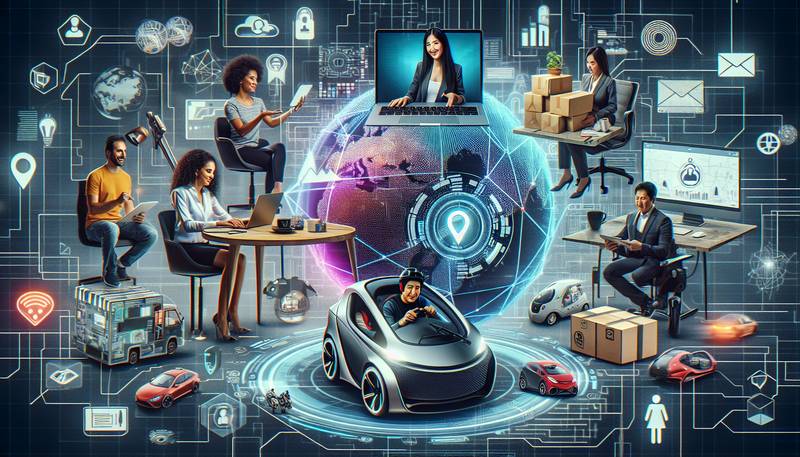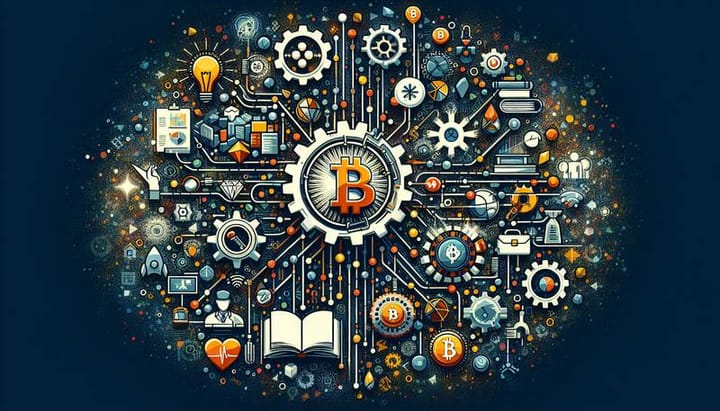The Gig Economy: Tech's Role in Shaping Modern Work

The gig economy has become a buzzword in recent years, with more and more people turning to freelance work and short-term contracts as a means of earning a living. But what exactly is the gig economy, and how has technology played a role in shaping it? In this article, we'll explore the rise of the gig economy, the impact of technology on the modern workforce, and what the future may hold for this rapidly evolving sector.
What is the Gig Economy?
The gig economy refers to a labor market characterized by the prevalence of short-term contracts or freelance work, as opposed to permanent jobs. This includes everything from ride-sharing services like Uber and Lyft, to food delivery apps like DoorDash and Grubhub, to freelance marketplaces like Upwork and Fiverr.
In the gig economy, workers are considered independent contractors rather than employees, which means they are not entitled to the same benefits and protections as traditional workers. This includes things like health insurance, retirement plans, and paid time off. Instead, gig workers are paid on a per-job basis and are responsible for their own taxes and expenses.
Technology's Role in the Gig Economy
Technology has played a significant role in the rise of the gig economy. The ubiquity of smartphones and high-speed internet has made it possible for people to work from anywhere, at any time. This has helped to create a more flexible and on-demand workforce, with companies able to tap into a global pool of talent and workers able to choose when and how they work.
Platforms like Uber and Airbnb have disrupted traditional industries by leveraging technology to connect customers with service providers. These companies have made it easy for people to monetize their skills and assets, whether that means driving for a ride-sharing service or renting out a spare room on a short-term basis.
Freelance marketplaces like Upwork and Fiverr have also made it easier for people to find work online. These platforms allow freelancers to showcase their skills and connect with clients all over the world. This has led to the rise of a new type of worker, the "digital nomad," who is able to work remotely from anywhere in the world.
The Impact of the Gig Economy on Workers
The gig economy has had a mixed impact on workers. On one hand, it has provided more flexibility and freedom, with workers able to choose when and how they work. This has been particularly appealing to younger workers and those looking for a better work-life balance.
On the other hand, the lack of job security and benefits has been a major concern for gig workers. Many have struggled with low pay, unpredictable schedules, and a lack of protection from discrimination and harassment. This has led to calls for better regulation of the gig economy and more protections for workers.
The Future of the Gig Economy
The gig economy is expected to continue growing in the coming years, with some estimates suggesting that by 2027, more than half of the U.S. workforce will be engaged in freelance work. This trend is likely to be accelerated by advances in technology, such as artificial intelligence and automation, which are expected to disrupt traditional industries and create new opportunities for gig work.
However, the future of the gig economy will also depend on how policymakers and companies address the concerns of workers. There have already been some efforts to provide gig workers with better protections, such as California's AB5 law, which requires companies to classify gig workers as employees in certain circumstances. Other companies, like Uber, have begun offering benefits like health insurance and paid time off to their drivers.
Ultimately, the future of the gig economy will be shaped by a combination of technological innovation and social and political forces. As the world of work continues to evolve, it will be important for all stakeholders to work together to create a more sustainable and equitable labor market.
Conclusion
The gig economy has undoubtedly transformed the modern workforce, with technology playing a key role in its development. While the gig economy offers many benefits, it also poses significant challenges for workers. As we look to the future, it will be important to strike a balance between the flexibility and freedom offered by the gig economy, and the need for better protections for workers. Only then can we ensure that the gig economy is a positive force for all involved.


